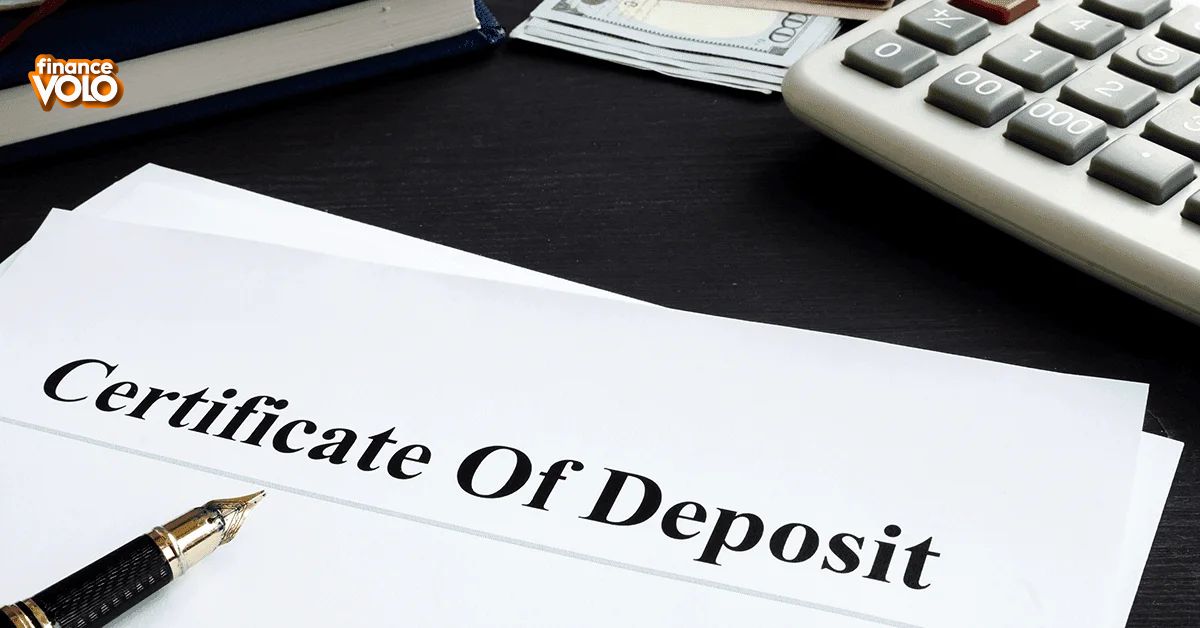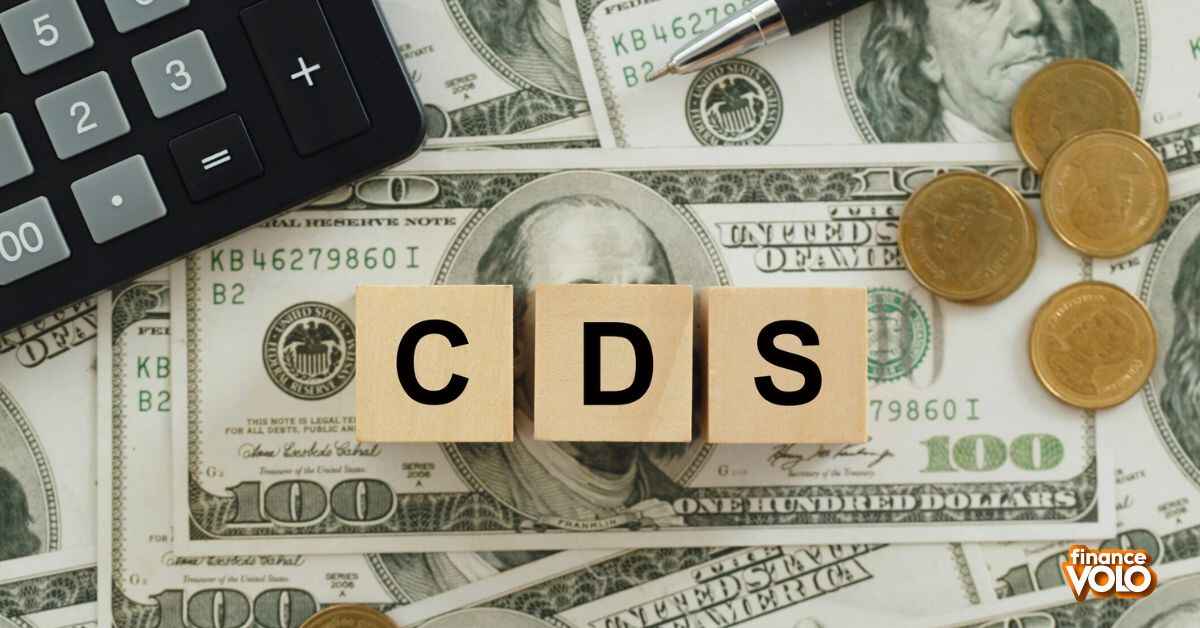Considering various banking options can often feel like navigating a maze of choices, each with its own set of benefits and drawbacks. However, when it comes to securing your funds with a reliable balance of growth and stability, Certificates of Deposit (CDs) emerge as a standout contender. Picture this: you have a sum of money you won’t need immediate access to, and you want it to work for you while keeping risks at bay.
This is precisely where CDs shine. Offering higher interest rates than standard savings accounts and the assurance of FDIC insurance, CDs provide a secure haven for your savings, making them an ideal choice for individuals seeking to grow their money steadily over a defined period. Let’s explore the nuances of when and why a Certificate of Deposit might just be the perfect banking choice for your financial goals.
CDs vs. Other Banking Options
When comparing Certificates of Deposit (CDs) with other banking options, it’s crucial to consider their unique features. CDs typically offer higher interest rates compared to standard savings accounts, making them appealing for savers aiming to maximize their returns.
Unlike savings accounts, CDs require you to lock in your funds for a specified period. While this provides stability, it also means limited access to your money. Despite these trade-offs, CDs offer a secure and low-risk way to grow your savings over time, making them a valuable addition to your financial strategy.
Benefits of CDs
Here are some Benefits of CDs
- Higher Interest Rates: CDs often offer higher interest rates compared to standard savings accounts, allowing you to earn more on your savings.
- Fixed Returns: With a CD, you know exactly how much interest you’ll earn over the term, providing stability and predictability to your earnings.
- Low Risk: CDs are typically considered low-risk investments since they are insured by the FDIC up to a certain limit, protecting your principal investment.
- Various Term Options: CDs come in various term lengths, ranging from a few months to several years, allowing you to choose the option that best fits your financial goals and timeline.
- Discourages Impulse Spending: Since CDs often impose penalties for early withdrawal, they can help discourage impulsive spending and encourage disciplined saving habits.
- Diversification: Including CDs in your investment portfolio can provide diversification, balancing higher-risk investments with a stable, fixed-income option.
- Ideal for Short-Term Goals: CDs can be a suitable choice for short-term savings goals, such as saving for a vacation, a down payment on a house, or an emergency fund, providing a secure place to park your money while earning interest.
Drawbacks of CDs
While Certificates of Deposit (CDs) offer several advantages, it’s essential to be aware of their limitations before committing to them. One drawback of CDs is their lack of liquidity; once you deposit your funds, you typically cannot access them until the CD matures without facing penalties.
CDs may offer lower returns compared to riskier investments such as stocks or mutual funds, making them less appealing for individuals seeking higher yields. If you need to withdraw your funds before the CD’s maturity date, you may incur early withdrawal penalties, eroding your earnings. Despite these drawbacks, CDs remain a valuable option for those prioritizing stability and security in their investment strategy
Ideal Savings Goals for CDs
When considering Certificates of Deposit (CDs) as part of your savings strategy, it’s essential to align them with specific financial goals. One ideal savings goal for CDs is saving for a down payment on a house. By depositing funds into a CD earmarked for your future home purchase, you can earn interest while keeping your savings safe and secure.
Another suitable goal for CDs is building a wedding fund. Setting aside money in a CD dedicated to covering wedding expenses allows you to grow your savings steadily without the temptation of dipping into it prematurely. Additionally, saving for a child’s education is a common goal for CDs. By investing in CDs with longer terms, you can accumulate funds for your child’s education expenses while benefiting from higher interest rates.
Related: Critical Infrastructure Such As Utilities And Banking Are Which Partners Responsibility?
Choosing the Right CD Term Length
Deciding on the ideal term length for your Certificate of Deposit (CD) involves considering your financial goals and timeline. Short-term CDs, with terms under 1 year, are suitable for near-future expenses like vacations or upcoming purchases, offering quick access to funds.
Mid-term CDs, lasting 1 to 5 years, strike a balance between earning competitive interest rates and maintaining flexibility making them ideal for goals such as saving for a down payment on a house. Long-term CDs exceeding 5 years, offer the highest interest rates but require a longer commitment, suitable for long-range goals like retirement savings. Tailoring your CD term length to your specific objectives ensures you maximize your savings effectively.
Interest Rates and CD Selection
Understanding how interest rates impact your Certificate of Deposit (CD) selection is key to maximizing your savings. Typically, CDs with longer terms offer higher interest rates than shorter-term ones. So, if you’re willing to commit your funds for a longer period, you can potentially earn more. It’s essential to balance this with your need for liquidity. Keep an Eye on market trends; when interest rates are rising, consider locking in a longer-term CD to capitalize on higher rates. Conversely, during a declining rate environment, shorter-term CDs may be more favorable, allowing you to reinvest at potentially higher rates in the future. By staying informed and strategic, you can make informed decisions to optimize your CD returns.
Early Withdrawal Penalties and How to Avoid Them
Navigating early withdrawal penalties is crucial when managing your Certificate of Deposit (CD) to ensure you maximize your savings. Typically, CDs impose penalties if you withdraw funds before the agreed upon maturity date. These penalties can eat into your earnings, so it’s essential to plan carefully.
One way to avoid these penalties is by aligning your withdrawal needs with your CD’s maturity date. Alternatively, consider building an emergency fund in a separate account to cover unexpected expenses, reducing the temptation to dip into your CD prematurely. By understanding and planning for early withdrawal penalties, you can safeguard your savings and optimize your financial strategy.
CDs for Different Risk Tolerances
When it comes to investing, understanding your risk tolerance is essential for making informed decisions about Certificates of Deposit (CDs). For those who prefer a low-risk approach, CDs offer a safe haven with guaranteed returns and FDIC insurance protection. This makes them ideal for conservative investors looking to preserve their capital while still earning a reasonable interest rate.
For individuals comfortable with taking on more risk in exchange for potentially higher returns, exploring other investment options such as stocks or bonds may be more suitable. By aligning your investment choices with your risk tolerance, you can build a diversified portfolio that suits your financial goals and comfort level.
Are CDs FDIC Insured?
Absolutely! Certificates of Deposit (CDs) are indeed FDIC insured, which means your investment is protected up to the maximum limit allowed by law. This insurance provides peace of mind, knowing that even if the bank fails, your principal investment is safe.
The FDIC, or Federal Deposit Insurance Corporation, was created precisely for this purpose – to safeguard consumers’ deposits and maintain stability in the banking system. So, when considering CDs as part of your financial strategy, rest assured that they come with the added security of FDIC insurance.
Alternatives to CDs
While Certificates of Deposit (CDs) offer stability and security, there are several alternative investment options worth considering to diversify your portfolio. One popular alternative is high-yield savings accounts which offer competitive interest rates and greater flexibility in accessing your funds without facing early withdrawal penalties.
Another option is Treasury securities such as Treasury bonds or Treasury bills, which are backed by the U.S. government and considered extremely low risk. Investing in dividend-paying stocks or bond funds can provide potentially higher returns, albeit with higher risk. By exploring these alternatives you can tailor your investment strategy to suit your financial goals and risk tolerance.
Ideal Savings Goals for CDs (Example)
When it comes to achieving specific financial goals, Certificates of Deposit (CDs) can be an excellent tool to help you reach your objectives. Let’s explore a couple of examples where CDs shine
Saving for a Down Payment on a House
Dreaming of owning your own home? CDs can be a smart choice for stashing away funds for a down payment. By depositing your savings into a CD dedicated to your home purchase, you can earn interest while keeping your money safe and secure. Plus, with various CD terms available, you can align the maturity date with your homebuying timeline, ensuring your funds are ready when you need them.
Building a Wedding Fund
Planning a wedding can be both exciting and expensive. Fortunately, CDs offer a reliable way to save for your big day. By setting aside money in a CD specifically designated for wedding expenses, you can earn interest on your savings while keeping them safe from impulsive spending. Whether you’re dreaming of an intimate ceremony or a lavish celebration, CDs provide a stable foundation for turning your wedding dreams into reality.
Saving for a Child’s Education
Planning for your child’s education is a significant financial commitment, but CDs can help make it more manageable. By opening a CD dedicated to your child’s education fund, you can earn interest on your savings while ensuring they’re protected. Plus, with the option to choose different term lengths, you can tailor the CD to align with your child’s educational milestones.
Choosing the Right CD Term Length (Example)
Selecting the appropriate term length for your Certificate of Deposit (CD) is crucial to meeting your financial goals effectively. Let’s explore a couple of examples
Short-Term CDs (Under 1 Year)
Short-term CDs, with terms under 1 year, are perfect for those with immediate savings goals. Whether you’re saving for a vacation or an upcoming expense, short-term CDs offer a quick way to earn interest on your funds without locking them away for too long. Plus, with the flexibility to access your money within a year, you can rest assured knowing your savings are within reach when you need them most.
Mid-Term CDs (1-5 Years)
Mid-term CDs, lasting 1 to 5 years, strike a balance between earning competitive interest rates and maintaining flexibility. They’re ideal for goals like saving for a down payment on a house or funding a major life event like a wedding.
With a mid-term CD, you can enjoy higher interest rates compared to short-term options while still having access to your funds within a reasonable timeframe. It’s the perfect middle ground for achieving your financial objectives without sacrificing liquidity.
Long-Term CDs (5+ Years)
For those with long-range financial objectives, such as saving for retirement or funding a child’s education, long-term CDs are an excellent choice. With terms exceeding 5 years, these CDs offer the highest interest rates, making them ideal for maximizing your savings over time. While they require a longer commitment, the potential for significant returns makes them worth considering for your future financial security.
Frequently Asked Questions
In which situation would a certificate of deposit be the best making choice?
A certificate of deposit (CD) would be the best banking choice when you want to earn higher interest rates on your savings and don’t need immediate access to your money.
How does a CD work in banking?
A CD works by depositing a sum of money with a bank for a fixed period, during which it earns interest.
Which of these is a characteristic of certificates of deposit CDs?
One characteristic of CDs is that they offer fixed interest rates over a predetermined term, providing stability and predictability to your earnings.
In which situation would a certificate of deposit?
A certificate of deposit (CD) would be suitable when you have a lump sum of money that you don’t need immediate access to savings account offers.
What is the benefit of CDs?
The benefit of CDs is higher interest rates compared to regular savings accounts.
Why do banks issue CDs?
Banks issue CDs to attract deposits, which they can then lend out to borrowers, thereby generating revenue through interest payments on loans.
Related Post: Which Of These Is A Banking Activity Of The Fed?
Final Words
The best banking choice, a Certificate of Deposit (CD) shines in specific financial scenarios. Imagine you have a lump sum of money you don’t need immediate access to, maybe it’s your emergency fund or funds earmarked for a future expense. Placing these funds in a CD can be a smart move. CDs typically offer higher interest rates compared to standard savings accounts, allowing your money to grow steadily over a fixed period.
CDs provide a sense of security with FDIC insurance, ensuring your principal investment is protected. So, if you’re looking for a safe and reliable way to earn higher returns on your savings without taking on significant risks, a Certificate of Deposit might just be the perfect banking choice for you.














